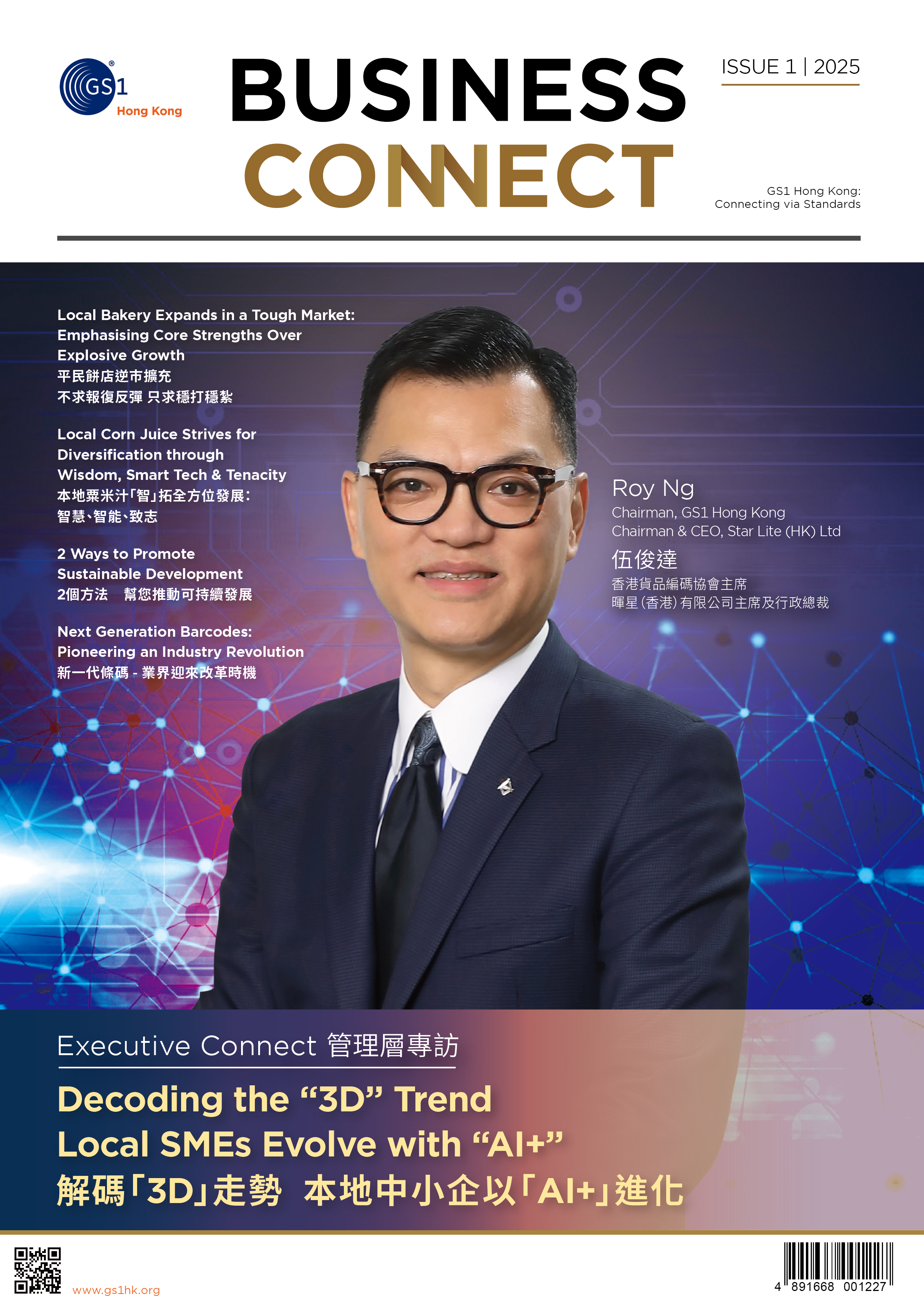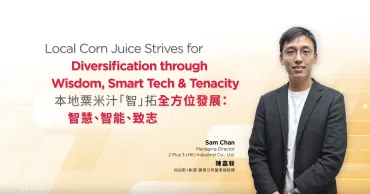
Local Bakery Expands in a Tough Market: Emphasising Core Strengths Over Explosive Growth
In the face of a sluggish economy, many shops and restaurants choose to hunker down or decisively close down, while some companies actively seek change, recognizing that business must either progress or decline. With 32 years of experience managing more than 30 bakeries and eateries, King Bakery understands that simply waiting out the storm can lead to falling behind, that’s why the company acquired a neighbouring industrial unit to ramp up their egg tart pastry production. Jerry Chong, Managing Director of King Bakery Holdings Ltd., knows that adopting a mass-market approach means the business may not yield exceptional growth during economic booms, but it minimises losses during downturns. He believes the key is to maintain the business core strength while fostering an innovative and growth mindset, preserving and preparing to seize opportunities as they arise.
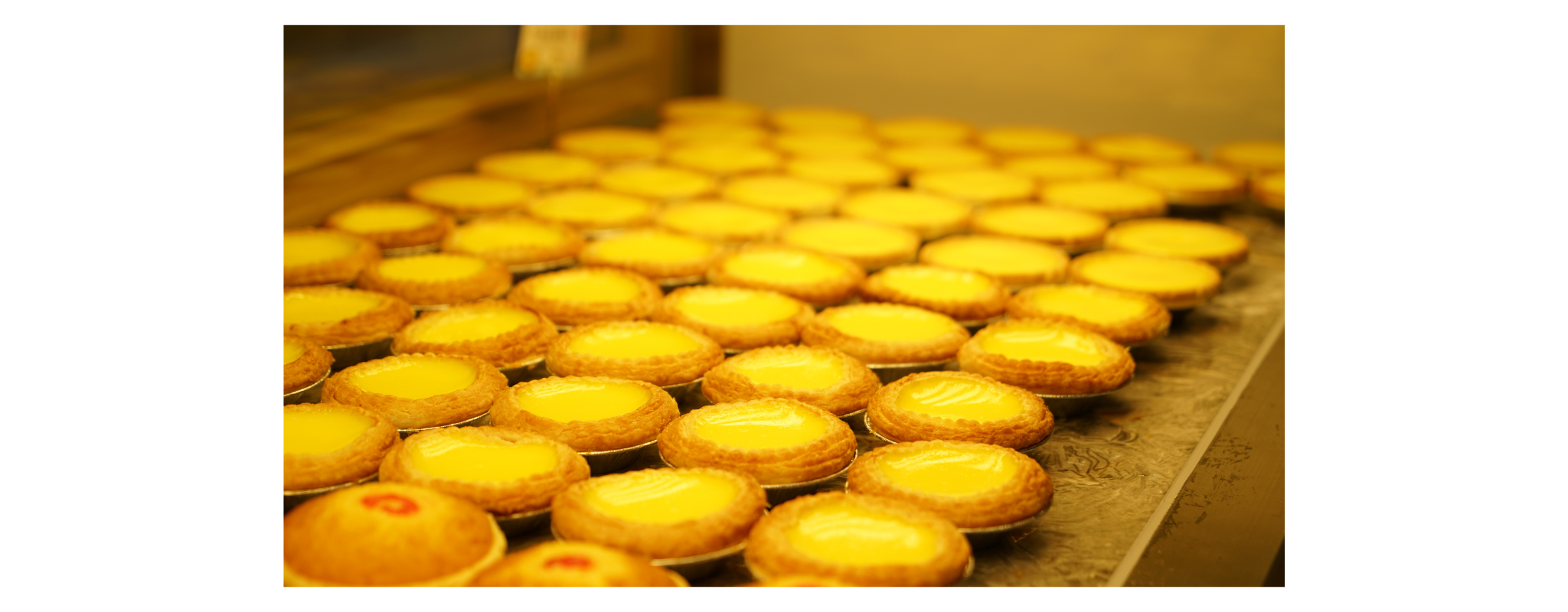
A Modern Management Approach to Tough Beginning
Jerry refers to himself as the 1.5-generation business founder, who joined the company one year after its inception. Back in the days, they operated takeaway services for congee, noodles, and pastries in the Kwun Tong industrial area, noting that while the entry barrier to start businesses was low, the management was often chaotic. Later, he joined the “Hong Kong Federation of Restaurants & Related Trades” in its early stages and tapped on the peers’ experience, learning that modern management practices and technology are essential to growing its business. In addition to installing advanced production machinery in the central kitchen, Jerry implemented various food production standards and management systems, such as obtaining ISO 22000 and HACCP certification for their factories, the 5S management approach and achieving HCS hygiene certification.
In recent years, King Bakery has expanded its B2B business alongside its established B2C operations. “Some five-star hotels have confided in us and placed order after touring our ISO 22000 and HACCP-certified facilities. I believe technology catalyses industry innovation, so after establishing our intranet system which significantly enhances efficiency, we also launched a mobile app, an online store, and expanded into other e-commerce platforms to attract members and drive sales. Even if some platforms may not be immediately profitable, it is essential to 'maintain presence' to build our brand.”
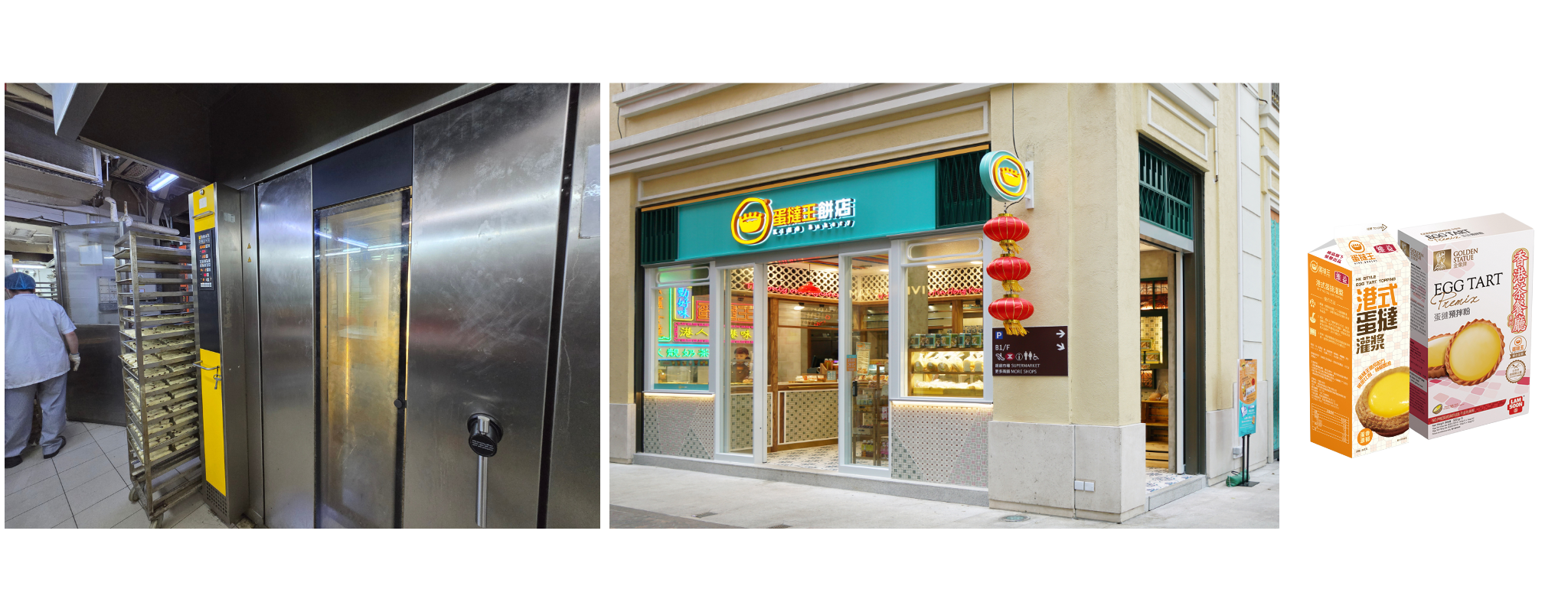
Modern Twist to Traditional Foods
The group now boast around 100,000 members who receive regular promotional offers. In response to the growing trend of home cooking, King Bakery collaborated with Lam Soon to launch Hong Kong's first pre-mixed egg tart powder. Recently, the company also introduced egg tart filling kits, bringing the intangible cultural heritage of egg tart-making into everyday homes.
To ensure the highest food quality, King Bakery only sells freshly baked egg tarts, discarding any that left on the trays for more than 90 minutes. To promote sales, they introduced an “Office Farewell” tart set packaged in a thoughtfully designed gift box. Customers can select any 12 pie-or-tart items for a hundred-something, including premium options like cheese tarts and chicken pies. “Generosity brings rewards,” as Jerry wisely puts it. “Most customers appreciate our assorted tart set, as it is both delightful and an all-time favorite. Rather than opting for the most expensive items, they often allow our staff to make selections for them, which helps our inventory movement.”
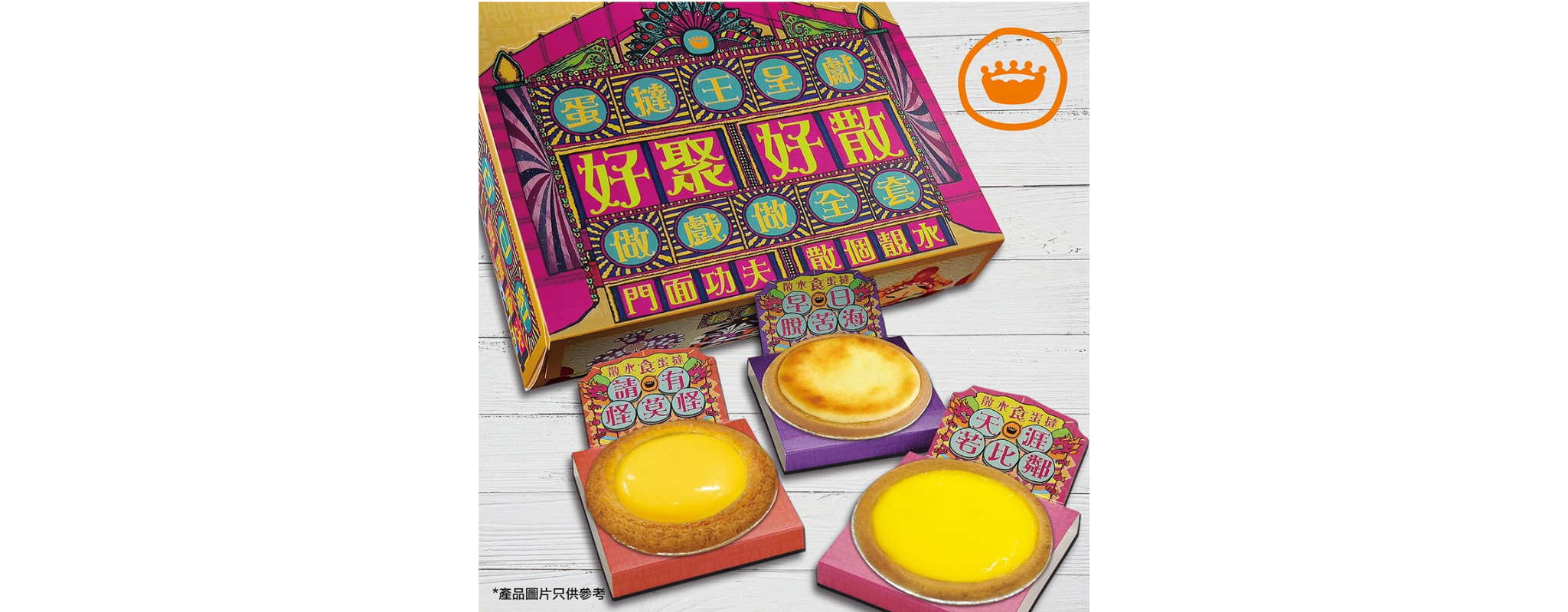
Innovation Fuels Growth
The Chinese bakery market sees fiercer competition, as most Cha-chann-teng are now offering pastries at their storefronts, while other brands of Japanese rice balls and Chinese buns are slowly encroaching King Bakery’s market share. Jerry admits that the days of boom are gone, and believes continuous innovation is the key to excite customers today when product choices are abundant and loyalty flailing.
He shares a saying from a peer: “Running a business is an ongoing process of refinement. Innovation is the only path to sustainable growth” Believing this, he set up a product development team early on, which is responsible for monitoring the market trends and launching new products regularly to enhance market competitiveness.
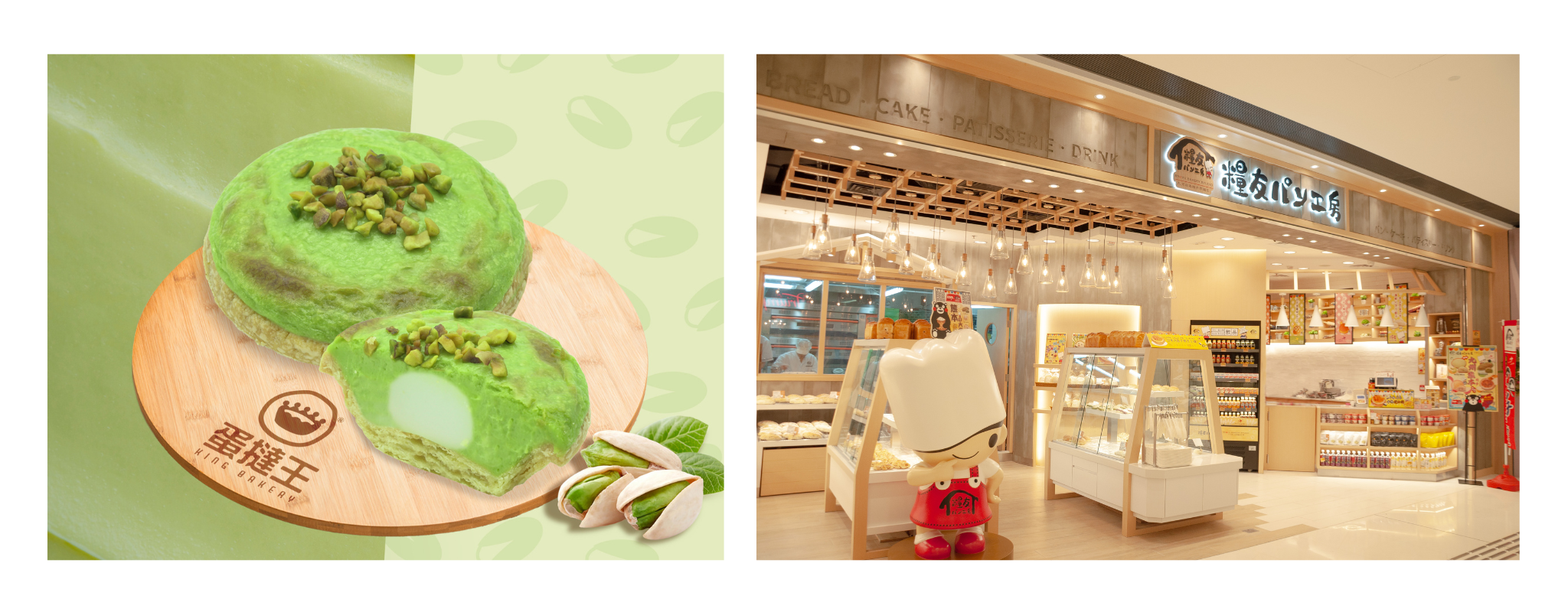
Even though King Bakery’s flagship egg tart was first in the market to receive the Q-mark certification, Jerry won’t describe his team as market leader, and doesn’t mind being a “follower”. For example, when pistachio products became popular, Jerry quickly directed the R&D team to catch up and launched a pistachio mochi cheese tart at an affordable price. The new offering quickly became one of the top three best-sellers for months.
Eyeing the health food trend, the group also introduced the joint venture brand Ryoyu Bakery Hong Kong in 2013 with partners, and launched their own naturally leavened sourdough and water roux breads, which are made by pure Japanese fermentation and stone oven baking techniques. This not only attracted a loyal following of health-conscious customers, but also demonstrates his team’s keen market sense and adaptability.
Forging ahead with a Purpose
As a member of GS1 HK, Jerry also serves on the “SMEs Advisory Board.” He points out that the bread and bakery industry is facing a shortage of labour. “Process automation is helpful and still someone needs to manage it. Young people are less inclined to work as bakery apprentices or summer staff today, preferring higher-value jobs, which creates a labour gap in the industry.” He believes that the craftsmanship of baking is overshadowed by tedious manual processes that have been under-appreciated. He hopes to use high-quality ingredients and fresh local production to uplift the value of products and the industry.

“King Bakery is the winner of the 1st edition “Quality Food Scheme ESG” (Excellence Award) organised by GS1 HK. Jerry highlights their commitment to energy conservation, waste reduction, renewable energy utilization, and recycling kitchen waste, considering these practices indispensable. While he remains cautious about current market conditions and hesitant to open new stores, he clearly understands the company’s positioning and strengths, maintaining a pragmatic and adaptable approach to change. These characteristics should serve as the rule of thumb of any business particularly the local SME peers.”

